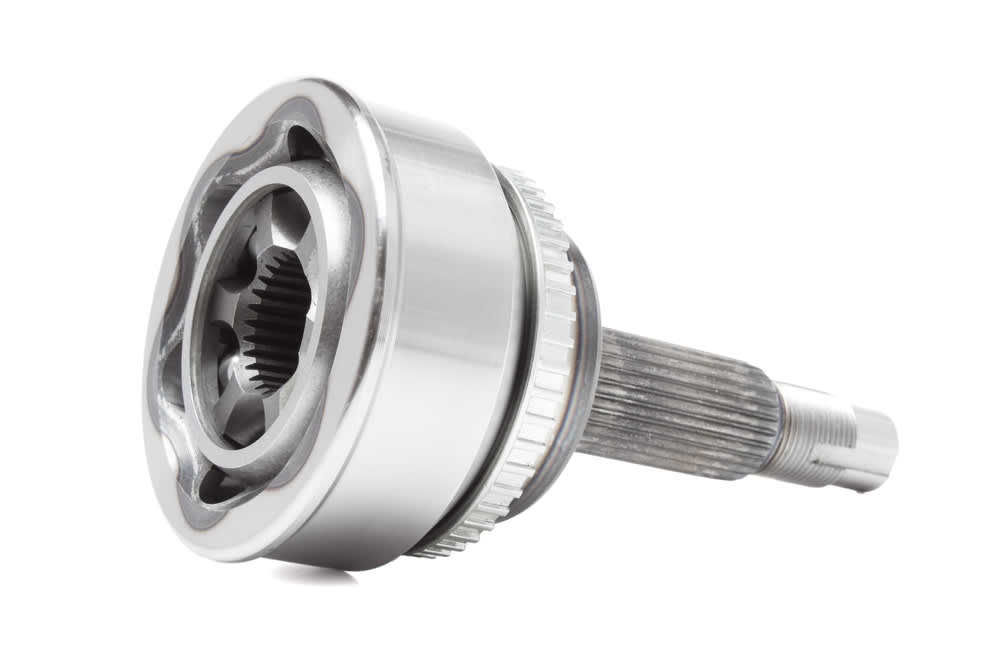

Your car’s axle must allow for the wheels to move around, bounce, and freely rotate. This action is facilitated by (CV) constant velocity joints. These unique couplings allow the tires to turn and move up and down in the ways they need to while you’re driving, while keeping them connected to the transmission via the axle.
Front-wheel drive vehicles typically have two CV joints on each side – inner and outer. Inner joint failure is rare because these parts aren’t subjected to nearly as much rotation – therefore wear – as the outer joints. The joints are packed with a specialized, heavy-duty grease and protected with a rubber boot that connects tightly with clamps.
While the outers can potentially last for the life of a vehicle, when problems arise is when the boots become damaged. If the rubber cracks or the clamps become compromised, moisture gets into the joint and causes damage at an alarming rate. That’s why you should have the boots replaced as soon as you notice any sign of a problem, or you’ll be faced with even more extensive – and expensive – repairs.
If something does happen to the CV joints, the signs are pronounced:
- A popping sound when turning
- Clicking or popping that worsens upon acceleration
- Disintegration of the joint - making the vehicle undriveable (if the damage is advanced enough)
Sometimes the constant velocity joint can be replaced by itself, and on some vehicles it may be integrated and the entire driveshaft must be replaced. The most important thing, no matter which type of repair you need, is that the part is durable and of high quality materials.
How to make sure you’re getting quality CV joints
Choose the correct type for your vehicle. Ball, or Rpezza, is the most common front-wheel drive constant velocity joint type – it utilizes a spherical interior with six grooves that create a path for the bearings. Single and double Cardan joints are plus-sign shaped. The single has a reputation for falling apart over 30 degrees of rotation, and double Cardan is usually used on 4WD vehicles.
Don’t go for the cheapest brand. When it comes to CV joints price can be a good indicator of quality. OEM is best because they’re engineered for maximum strength in your specific vehicle, but some aftermarkets are acceptable.
Look at the warranty – better brands typically offer better warranties. There is a wide variation – from one year all the way to lifetime – so balance your budget with the best possible protection level.
Changing CV joints is a difficult job that is best performed by certified mechanic. YourMechanic supplies top-quality CV joints to our certified mobile technicians. We can also install a CV joints that you've purchased. Click here to get a quote for an CV Joint / CV Shaft Assembly Replacement.



